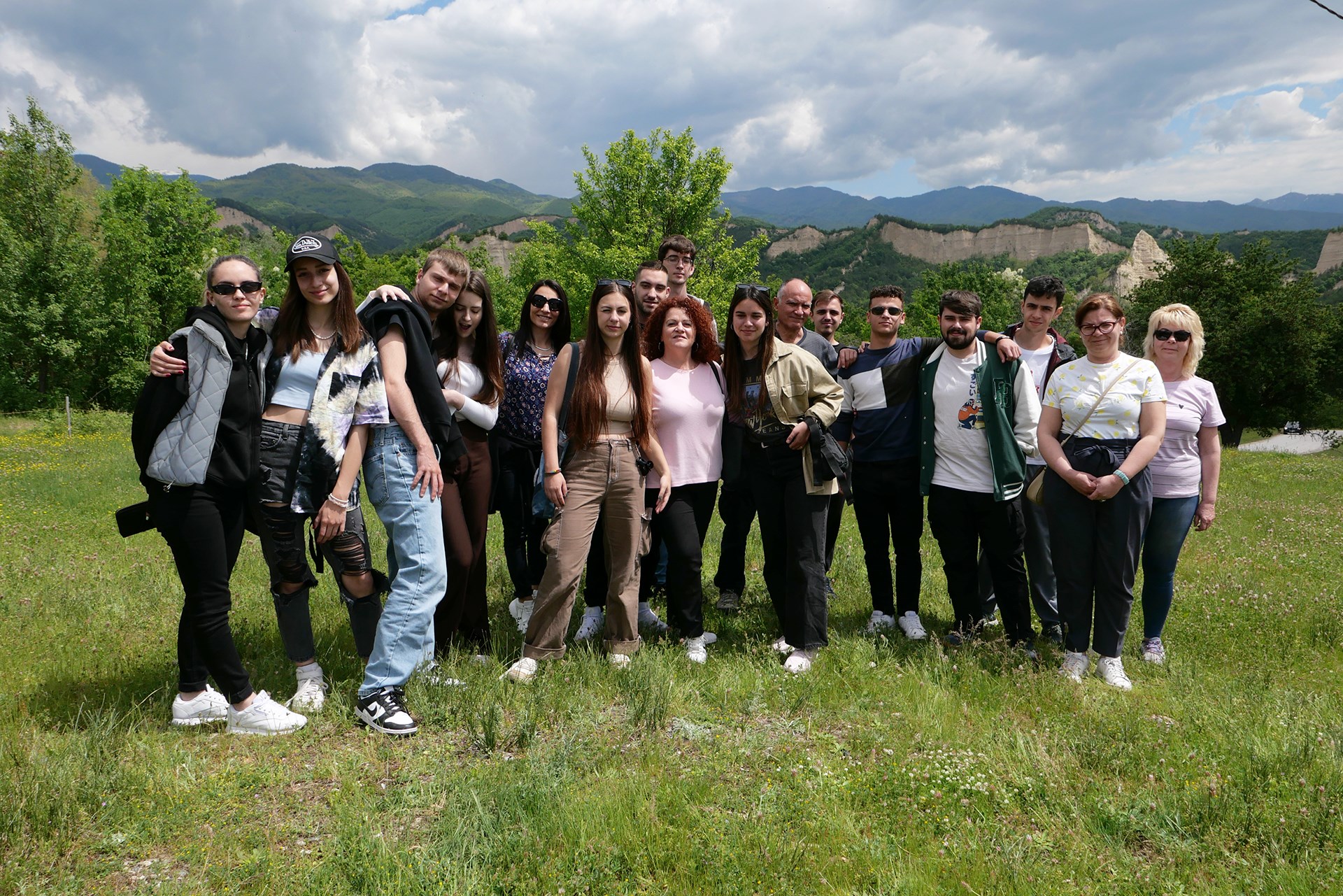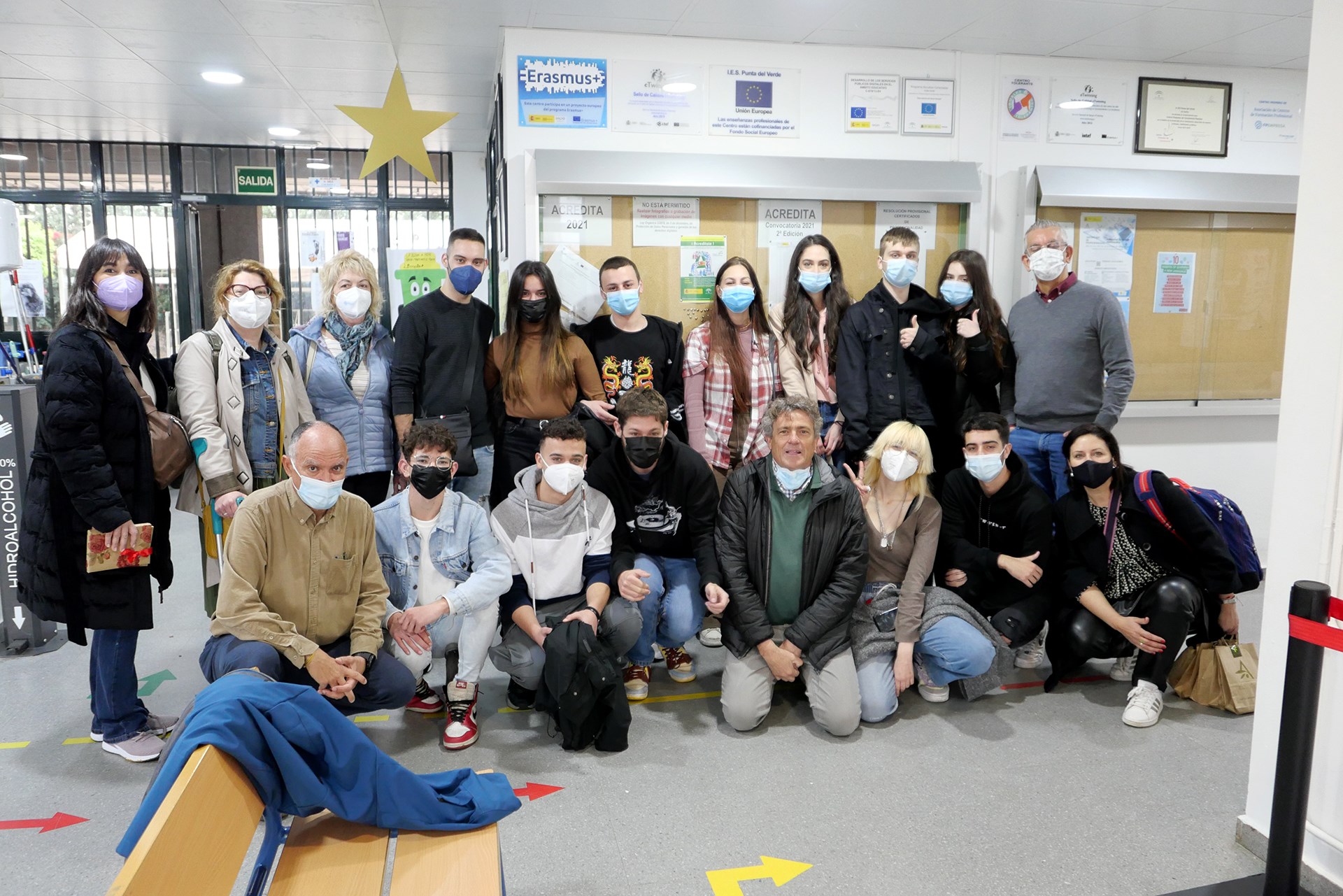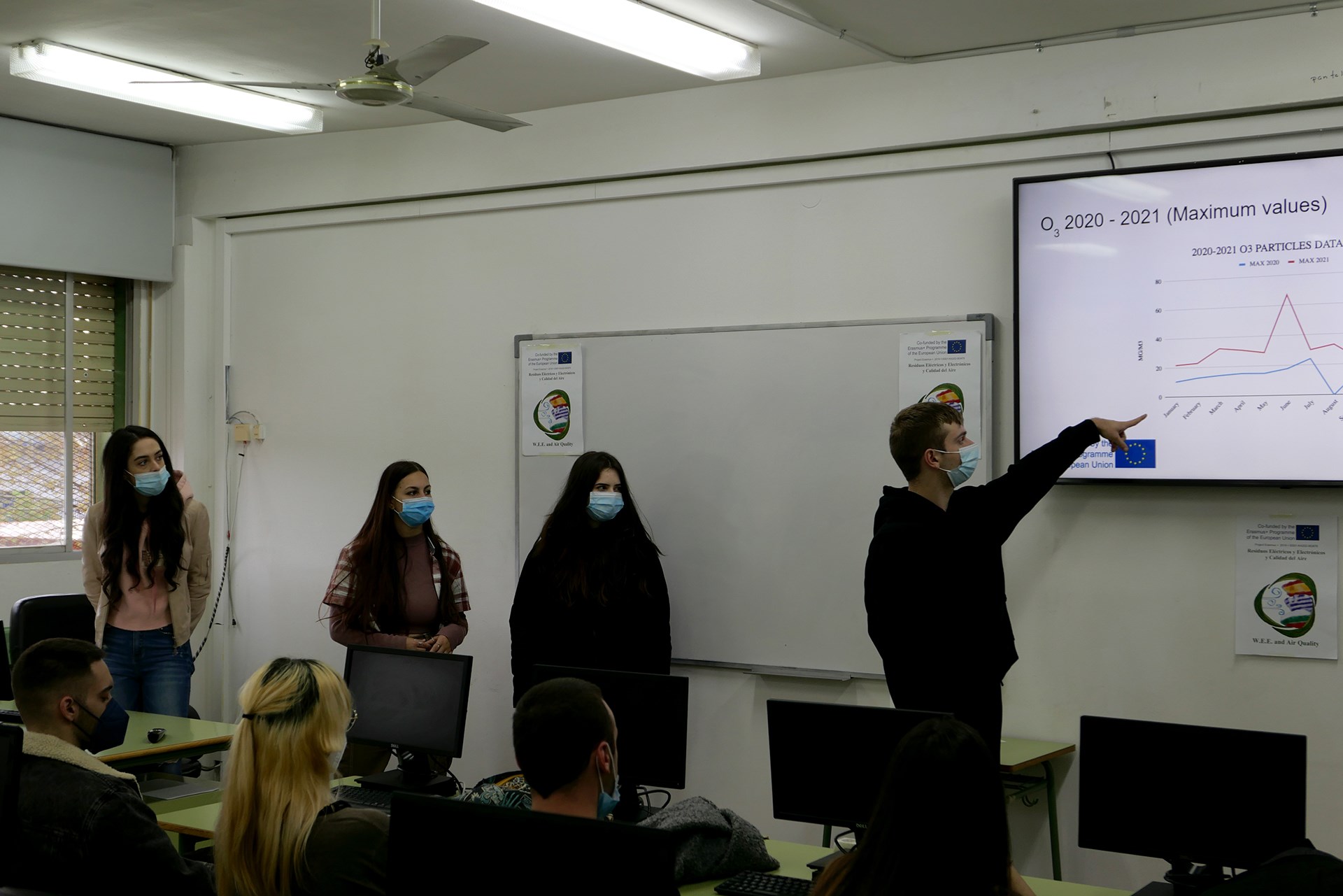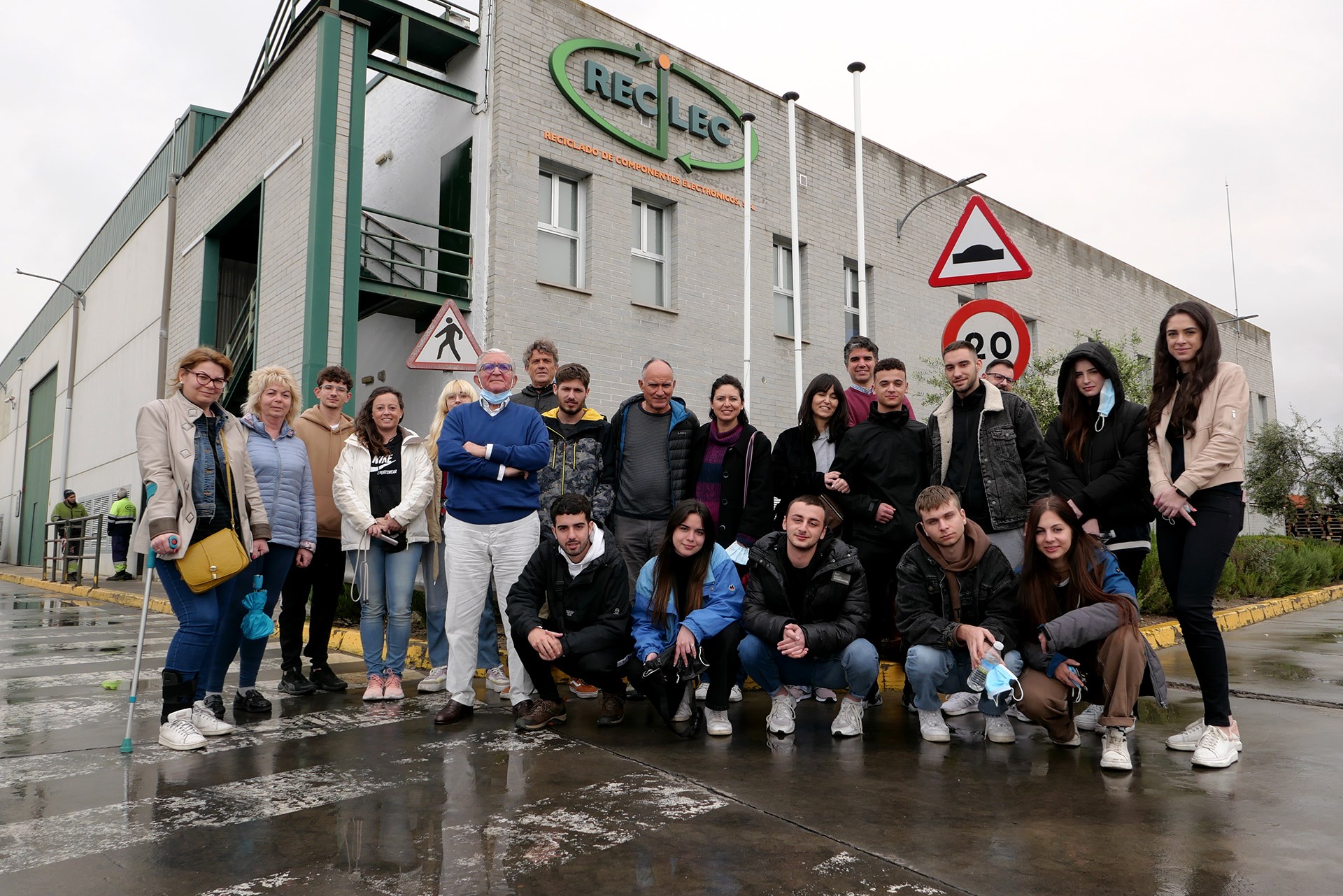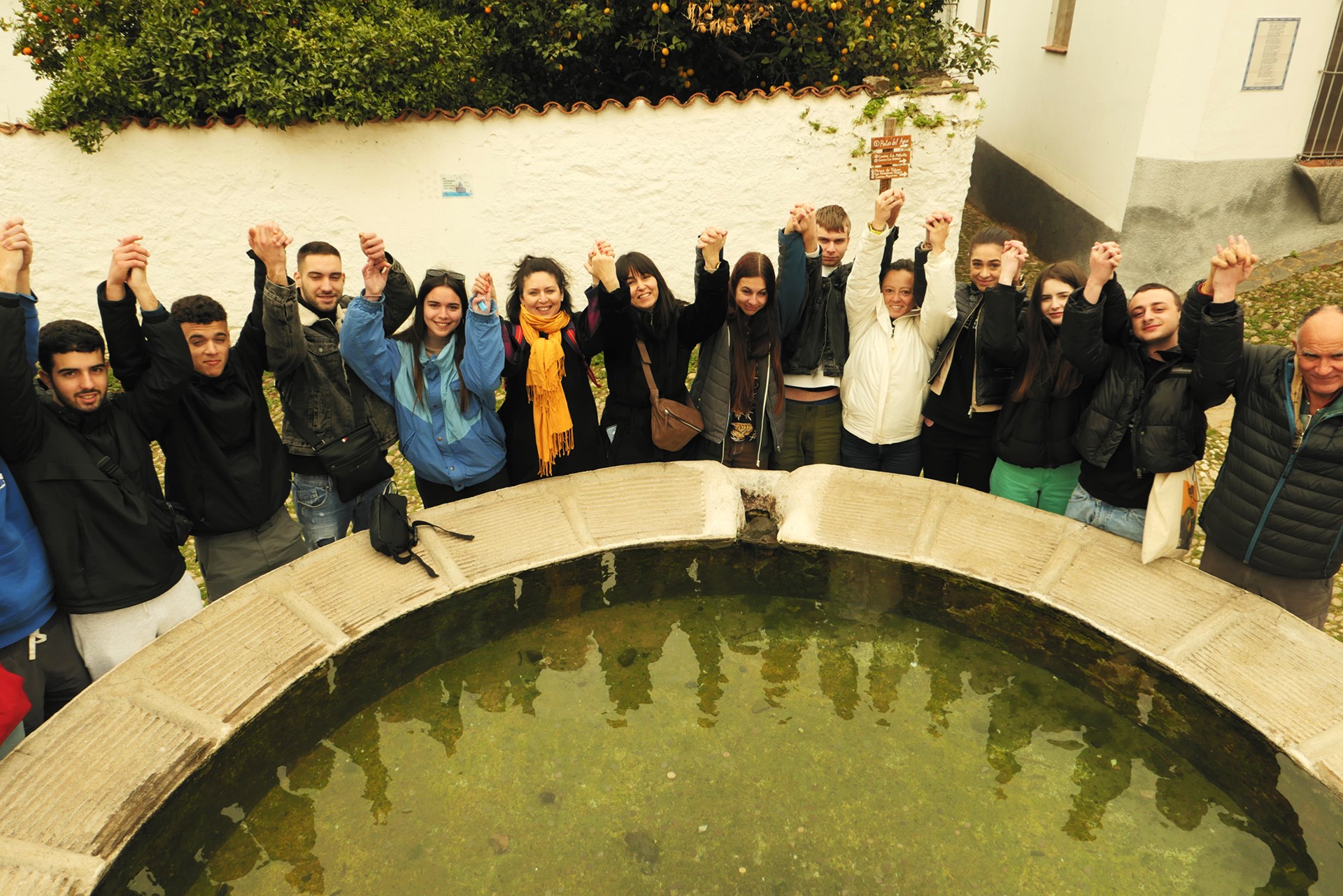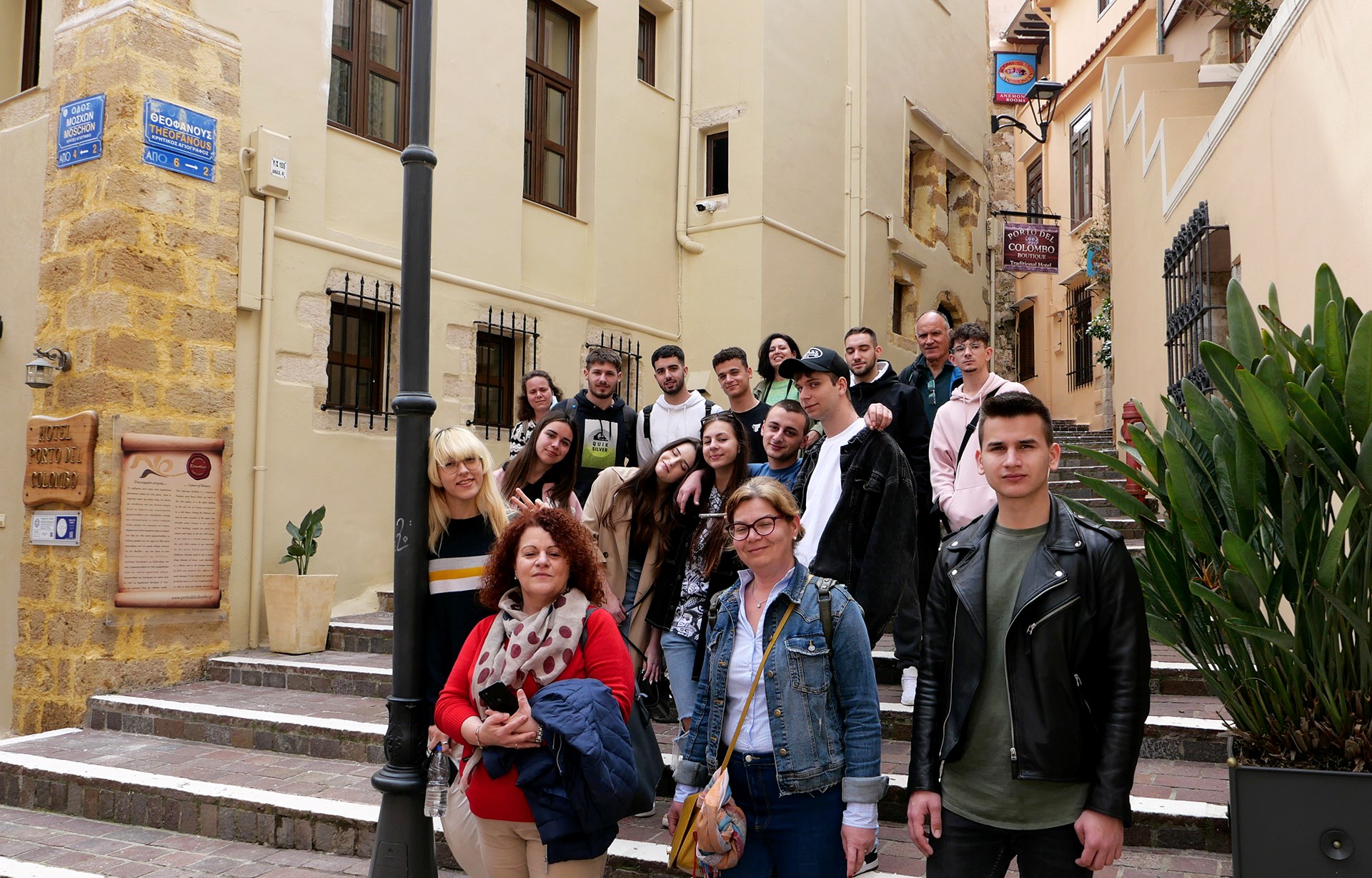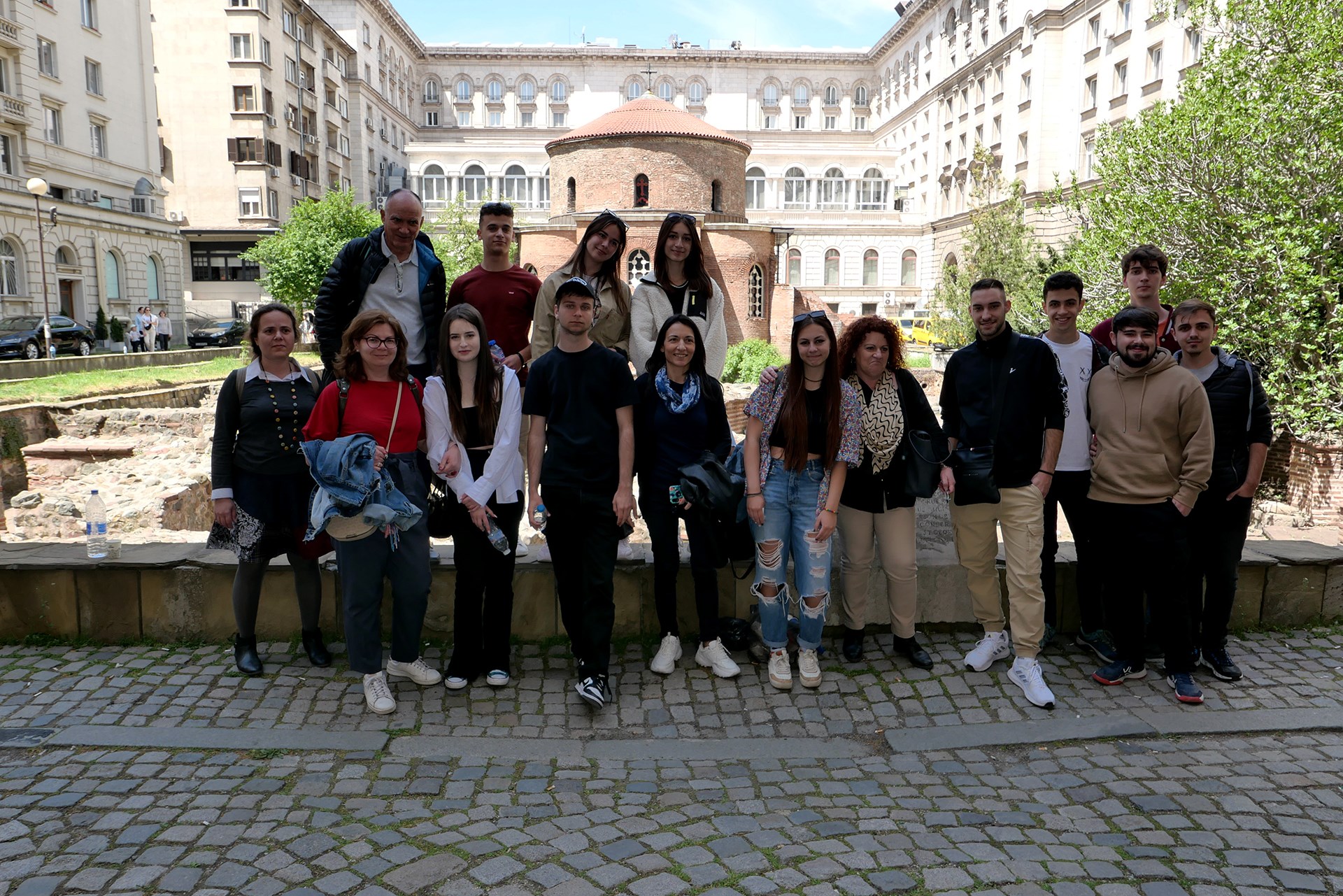ELECTRICAL AND ELECTRONIC WASTE AND AIR QUALITY
Erasmus+ Project
The Erasmus+ Adventure
Through the Eyes of Maya Boneva-Nikolova, ACS Spanish Language Teacher
The adventure called Erasmus+ started in October of the distant year 2019. In the project 2019-1-ES01-KA202-063878 Electrical and Electronic Waste and Air Quality, dedicated to the quality of the air we breathe and the recycling of electronic and electrical waste, three countries participated: Spain - coordinator and Greece and Bulgaria - partners. The two vocational schools from Seville, Spain and Chania, Greece were responsible for the development of various software programs and devices, and the American College handled the theoretical part of the project.
We started work with great enthusiasm in 2019 and the project was just gaining momentum and we held the first mobility in Seville and the pandemic appeared and we had to stop all activities related to live contact. Despite the pandemic situation, we continued our work on the project with numerous online meetings and presentations. This is how we worked in 2020 and 2021. Due to the pandemic, the project deadline was extended by one year and so instead of August 2021, the project ended in August 2022.
During the academic year 2021/2022, two mobilities were planned to Chania, the island of Crete, one to Seville, Spain and one to Bulgaria. All mobilities were carried out, but the Bulgarian team was unable to carry out the first mobility to Chania, in October 2021, in which we participated only virtually.
The first trip, after a two-year hiatus, was to Seville, Spain (March 14-18). The students who participated in this part of the project were: Gergana Peeva (12th grade), Magdalena Katanova, David Gaidev and Maya Yonkova (11th grade). During this mobility, each country presented the results of its work in the past months. We visited various natural sites where we measured the air quality and organized activities to get to know the participants.
The next mobility was to Chania, island of Crete (28.03 - 1.04.2022). Only students from the 11th grade participated: Magdalena Katanova, David Gaidev, Maya Yonkova and Boris Nachev. The program of this mobility was very similar: a report of the activities carried out by each country, a visit to natural sites in order to measure the air quality and to get to know the participants.
The last mobility under the project was in Bulgaria (May 9-13). The participants were again only from the 11th grade: Magdalena Katanova, David Gaidev, Maya Yonkova and Mila Pavlova. The program was very diverse and we visited different beautiful corners of Bulgaria.
Within the project, the students realized the amount of waste that each of us produces and the ways to recycle the different waste. This contributed to improving their responsibility towards nature and conscious shopping for food and clothes.
The most valuable part of the project is the lifelong friendships made.
We thank the Erasmus+ program and hope to work on new projects in the coming years!
WHO: SPAIN (I.E.S. PUNTA DEL VERDE), GREECE (SECOND VOCATIONAL HIGH SCHOOL OF CHANIA), BULGARIA (AMERICAN COLLEGE OF SOFIA)
WHEN: from 01/09/2019 to 31/08/2021 (24 months)
WHERE: SEVILLA (SPAIN), CHANIA (CRETE), SOFIA (BULGARIA)
The project consists of:
- The analysis of how EEE (Electrical and Electronic Equipment) are recycled in the students’ school
- The analysis of what storage and removal mechanisms are currently in place
- The installment of devices in order for the students to get their own air-quality measurements
- Researching on the work of the recycling companies the students visit
- Researching on the impact that waste and air quality have on natural spaces they visit nearby
- Researching on air pollutant particles, their impact on people’s health and the most effective habits that contribute to the improvement of air quality.
The key objective is:
To raise awareness within each center’s educational community of the need for air to be contaminant-free and for an adequate recycling system of EEE waste.
SPECIFIC ASSIGNMENT OF EACH STUDENTS’ GROUP:
- GREECE works on the hardware component for data collection of air quality and the recycling of electrical and electronic devices
- BULGARIA works on the scientific aspects: air particles and their impact on health, impact of an inadequate recycling system on the environment and who are the polluting agents, as well, statistical analysis of the data.
- SPAIN works on the design of the databases that are loaded with the air quality information that is published by public organizations as well as on the development of a computer program that graphically shows air quality data.
Types of visits:
- Visits to recycling companies, in order to get to know the various management systems that are in place in different countries for electrical and electronic waste and consumables.
- Visits to natural areas of each country, in order to get to know the impact that air pollution and waste exert on them.
- Cultural visits which raise awareness of cultural diversity, therefore promoting the students’ interest in European cultural heritage. Spending time together through these visits is essential to create a close relationship between the partners centers.
THE MOST SIGNIFICANT RESULTS OF THE PROJECT ARE:
- Development of computer program that displays indicators and graphs on air quality
- Statistical study of air quality data
- Personal Manual of Good Practices in order to promote better air quality
- Document and short videos with recommendations for proper storing and recycling of EEE and consumables in school centers
- Publications on web platforms and YouTube channel
- Contact with recycling companies, Cervantes Institute, educational administrations, environmental associations, etc.
PROGRESS REPORT SEPTEMBER 2020 - JUNE 2021
- On September 28th was held the first online meeting for the academic year 2020/2021. The topics discussed in this meeting were the current progress of the project, the mid-project evaluation and the tasks for the upcoming semester.
It was declared then that during the first three months of the new school year there will not be any exchanges because of the COVID-19 pandemic regulations around Europe.
It was decided that every school will select the students who would participate in the project for the academic year 2020/2021. After the selection, a meeting with the students was held to distribute tasks and the information was published on the website of the project.
The prepared materials were presented at a follow-up meeting.
- On December 22nd a meeting was organized only between the teachers involved in the project, in which they discussed the following topics:
- Analysis of the situation after the first trimester
All schools operated online, so there was no direct contact between students and teachers, which made the work much more challenging.
The task of the Greek tema could not be completed due to the pandemic.
The Bulgarian team worked on research about the dietary habits of the people in Bulgaria during the different seasons of the year and the connection between the diet and the pollution of the environment.
The Spanish team worked on measuring air quality, recycling electronic and electric devices, and the proper methods to use printers and office materials.
2.Updates on the project and the exchanges
The project will not be renewed again and will have to be completed by June 2022.
The possibility of having two exchanges by the end of the school year was discussed.
3.Schedule for a new online meeting between the students who participate in the project
The purpose of this meeting was for the students to introduce their peers to their progress on the project. The meeting was to be attended by 2 teachers and 4 students from each of the participating countries.
- On January 25th 2021 was held the official meeting between the students and the teachers involved in the project. The schedule was as follows:
-Opening and presenting of the activities for the meeting
-A short introduction of each participant
-Presentation by the Bulgarian team called "What to eat in order to harm the environment less?"
-Presentation by the Spanish team called “Impresoras responsables”.
- On June 14th was held the last online meeting for the year between students and teachers participating in the project.
A report was made for the past year and the accomplished tasks.
The possible exchanges in 2021/2022 were discussed.
There will be a meeting in September 2021 to organize the work for the upcoming 2021/2022 academic year.

The European Commission's support for the production of this publication does not constitute an endorsement of the contents, which reflect the views only of the authors, and the Commission cannot be held responsible for any use which may be made of the information contained therein.
